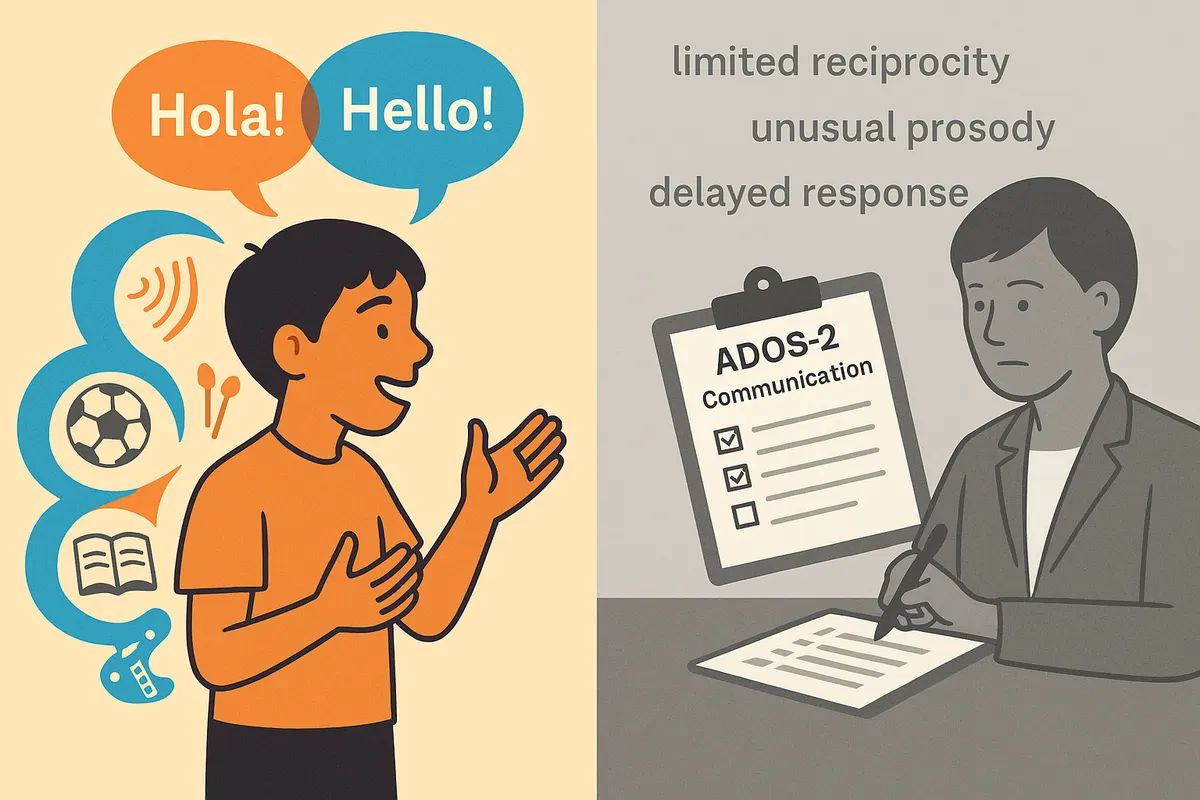What Language Says — and Doesn’t Say — About Autism
 On paper, it’s a simple question: Does the language of assessment affect how autism is diagnosed in bilingual people?
On paper, it’s a simple question: Does the language of assessment affect how autism is diagnosed in bilingual people?
A new study in the Journal of Autism and Developmental Disorders tries to answer it. Researchers gave the ADOS-2 — one of the most widely used autism assessments — to 94 Spanish-English bilingual individuals. Each person was assessed twice: once in English, once in Spanish. Then they compared the scores.
Here’s what they found:
- For most people, it didn’t matter which language was used. The results were consistent.
- In a small number of cases, there was a slight difference. But when that happened, the score in the person’s dominant language usually matched the clinician’s best estimate.
In other words: bilingualism didn’t distort the results. It added context. And context made things clearer — not messier.
What This Study Gets Right
First: it respects bilingualism as part of the picture, not a problem to solve. That alone makes it unusual. Too many studies treat multilingual people as diagnostically complicated, when the real issue is that the tools were designed for monolingual, white, middle-class English speakers.
This study challenges that default. It doesn’t assume that difference equals confusion. It doesn’t treat bilingualism as a problem to work around. It just asks: Can we hear them accurately in both?
And mostly, the answer is yes.
What It Doesn’t Ask (But Should Have)
The study is careful, useful and technically sound. But it still operates from a clinical distance. There are no autistic co-authors. No reflections from the bilingual people being assessed. No questions about what it feels like to be diagnosed in a language that isn’t your own.
Because this isn’t just about translation. It’s about tone. Context. Comfort. Safety. It’s about whether someone understands not just your words, but your world.
And while the ADOS-2 may score similarly in both languages, that doesn’t mean it captures autistic communication fully — especially across cultures. The tool is stable. That doesn’t make it neutral.
A Better Frame
This study matters because it pushes back against a quiet but powerful assumption: that bilingualism is a barrier to clarity.
It isn’t. It’s a clue. It’s context. It’s a reminder that autistic people live in more than one language, one culture, one frame of reference.
And if the system can’t handle that complexity, the answer isn’t to simplify the person. It’s to expand the system.
This study is a step in that direction. Not perfect. Not participatory. But promising.
And if more research followed its lead — treating variation as valid, not volatile — we might get closer to something rare:
Autism research that listens in more than one language.